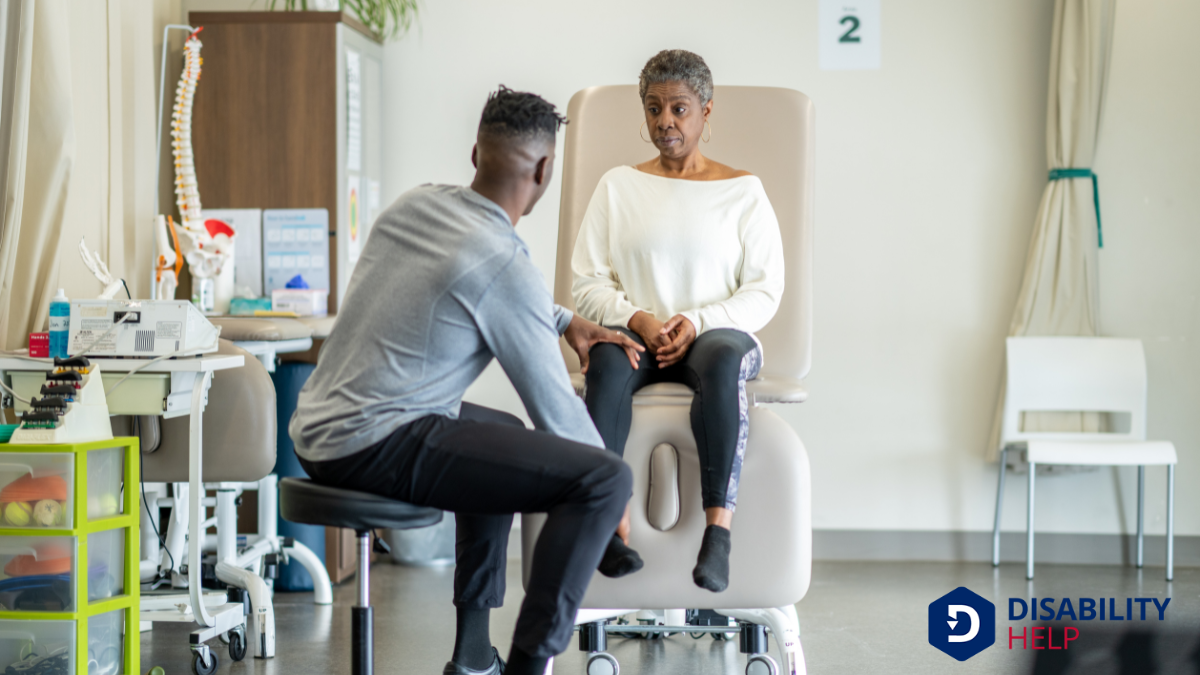When reflecting on how much injury compensation you might receive, several factors come into play. The severity of your injuries, medical expenses, lost wages, and emotional impact all influence the compensation amount. You’ll also need to take into account liability and negligenceA legal concept where a party fails to exercise reasonable care, resulting in harm to another person... aspects. It's essential to have thorough documentation to support your claim. Wondering how to navigate this complex process effectively? Let's explore the key components and strategies to guarantee you get the compensation you deserve.
Key Takeaways
- The compensation amount depends on injury severity, including medical expenses and lost wages documentation.
- Pain and suffering compensation considers the physical and emotional distress experienced due to the injury.
- Gathering thorough medical evidence is crucial for supporting claims and calculating compensation accurately.
- Lost wages compensation reflects income loss and potential future earning capacity impacted by the injury.
- Consulting a lawyer can help navigate the claims process and negotiate with insurance companies for fair compensation.
Understanding the Types of Compensation
When it comes to injury compensation, it's crucial to grasp the different types available to guarantee you're adequately covered.
First, there's medical compensation, which reimburses your treatment costs, including hospital stays and medications.
Next, consider lost wages compensation if your injury affects your ability to work, making sure you don't lose income.
Pain and suffering compensation addresses the physical and emotional distress suffered due to the injury.
Additionally, property damage compensation applies if any personal belongings were damaged in the incident.
Finally, there are punitive damages, designed to penalize especially negligent parties and deter future misconduct.
Understanding these categories guarantees you know what to expect and helps you make informed decisions about your claim, providing peace of mind during recovery.
Assessing the Severity of Your Injury

When evaluating the severity of your injury, I'll focus on two vital aspects: injury impact analysis and the importance of medical evidence.
Understanding how your injury affects your daily life and work is essential, as it directly influences compensation.
Make sure to gather thorough medical documentation to support your claim and demonstrate the injury's impact.
Injury Impact Analysis
Understanding the impact of an injury is vital because it directly influences the compensation you might receive. When evaluating the severity, consider how it affects your daily life and ability to work. Are you unable to perform tasks you once did easily, or has your earning capacity diminished? These factors are significant in determining compensation.
I always suggest reflecting on both physical and emotional impacts. Physical injuries can alter mobility, while emotional trauma might affect your mental health.
Ask yourself, how has your injury changed your life? The answer helps in forming a clearer picture of your compensation needs.
Medical Evidence Importance
While evaluating the severity of your injury, collecting robust medical evidence becomes essential.
I can't stress enough how important it is to have detailed medical records. These documents help paint a clear picture of your injury's impact on your life. You should gather records from doctors, specialists, and any other healthcare providers involved in your treatment. This evidence includes medical reports, test results, and treatment plans.
Having this information allows others, like insurance companies or legal representatives, to understand the full extent of your injury. It also demonstrates how the injury has affected your ability to work or perform daily activities.
Don't underestimate the power of thorough medical documentation—it's critical for ensuring you receive fair compensation for your injury's impact.
Calculating Medical Expenses
Calculating medical expenses is an essential step in determining the total compensation for an injury. When I look at my medical bills, I need to take into account every cost directly tied to my injury. This includes hospital stays, surgeries, and even follow-up appointments.
I can't forget about the smaller charges, like prescription medications and physical therapy sessions, which add up quickly. It's important to gather all receipts and bills, even those that seem minor.
I should also factor in any medical equipment I've purchased, like crutches or braces, as these are part of my recovery costs. By keeping thorough records, I guarantee that all my medical expenses are accurately reflected and included in my compensation claim.
This way, I’m fully reimbursed.
Evaluating Lost Wages and Future Earnings
When determining my injury compensation, I can't overlook the crucial aspect of evaluating lost wages and future earnings.
It’s important to reflect on not just the immediate loss of income, but also how my injury might affect my ability to earn in the future. I need to account for any time I couldn’t work, whether due to hospital visits or recovery.
Calculating this involves gathering my pay stubs or salary records to establish what I’ve lost. Beyond that, I must contemplate potential promotions or raises I might miss because of my injury.
If my ability to work in the long term is affected, it’s significant to factor in any diminished capacity to earn, ensuring a fair compensation package.
Considering Emotional and Psychological Impact

Acknowledging the financial impact of an injury is one piece of the puzzle, but it's also important to recognize how such an event can affect one's emotional and psychological well-being.
An injury can lead to anxiety, depressionA mental health condition marked by persistent feelings of sadness and loss of interest., or even post-traumatic stress, making daily life feel overwhelming. You might find yourself withdrawing from activities you once enjoyed, or feeling disconnected from loved ones.
It's essential to understand that these invisible scars are as real as physical ones, and they, too, deserve attention and compensation.
When considering compensation, don't overlook the mental strain caused by the injury. Keep track of therapy visits, medication costs, and any changes in your emotional health.
This isn't just about money; it's about acknowledging the full extent of your experience.
The Role of Liability and Negligence
While understanding the emotional impact of an injury is essential, we can't ignore the role of liability and negligence in determining compensation.
When an injury occurs, figuring out who's at fault can greatly affect the amount you might receive. If someone else’s negligence caused your injury, they could be held liable, potentially increasing your compensation.
I know it might feel overwhelming, but establishing fault is vital. It involves proving that the other party failed to act with reasonable care, leading to your injury. This aspect of your claim decides how much responsibility each party holds.
Gathering Evidence for Your Claim
When you're preparing to support your injury claim, gathering solid evidence is essential.
I'll guide you through documenting medical records, understanding the importance of witness statements, and photographing the accident scene.
Each of these elements can greatly strengthen your case and increase your chances of receiving fair compensation.
Documenting Medical Records
Accurate documentation of your medical records is vital when gathering evidence for your injury claim. I can't stress enough how important it is to keep everything organized.
Start by collecting all relevant medical reports, treatment notes, and bills. These documents provide a timeline of your injury and proof of the treatments you've received. Don’t forget about any prescriptions or therapies prescribed. They all paint a picture of your recovery journey.
Make certain every visit to a healthcare professional is recorded. Detailed notes about symptoms, diagnoses, and future treatment plans add weight to your claim.
Accurate and complete records can demonstrate the impact the injury has had on your life. Taking the time now to guarantee everything is documented will pay off in the long run.
Witness Statements Importance
Alongside meticulously documenting your medical records, gathering witness statements plays a pivotal role in strengthening your injury claim. Witnesses can provide an unbiased account of the incident, offering details you mightn't recall. Their perspectives can validate your account, making your case more credible.
When securing these statements, guarantee they’re clear and thorough. Speak with those who directly observed the incident and ask them to detail what they saw, heard, and noted about the environment. Be prompt in reaching out, as memories can fade over time.
Written statements or recorded interviews can serve as powerful evidence. By presenting a cohesive narrative supported by witness accounts, you’re more likely to achieve a favorable outcome in your compensation claim.
Photographing the Accident Scene
Capturing clear photographs of the accident scene is essential for building a compelling injury claim. When you’re in the aftermath of an accident, your phone’s camera becomes a powerful ally.
Start by taking wide shots to capture the overall scene, including all vehicles and any relevant road signs or signals. Then, zoom in for close-ups of damages, skid marks, road conditions, and any other details that might support your case.
Don’t forget to photograph injuries as soon as possible, documenting their progression over time. If weather conditions or lighting aren’t ideal, adjust your camera settings or find alternative angles.
Your photographs can provide undeniable evidence, helping insurance adjusters and legal professionals understand the incident’s context and severity, strengthening your claim.
Working With Insurance Companies

Steering through the intricacies of working with insurance companies can be challenging, but understanding the process is essential to securing the injury compensation you deserve.
First, report the incident promptly to your insurer, providing all necessary details. Include dates, descriptions, and any relevant documents, like medical reports or photos.
It’s vital to keep a detailed record of all communications with the insurance company, noting dates and contact names.
When discussing your claim, stay calm and factual. Avoid admitting fault or speculating about the accident, as this might affect your compensation.
Don’t hesitate to ask questions if you’re unsure about any part of the process. Remember, the adjuster’s goal is to minimize payout, so advocate for your rightful compensation.
Seeking Legal Assistance
Maneuvering insurance claims isn’t always straightforward, and sometimes it’s smart to bring in an expert.
I’ve found that consulting a lawyer can make a world of difference. They can guide you through the process and help maximize your compensation.
Here’s what a legal expert can do for you:
- Evaluate Your Case: A lawyer will assess your situation and pinpoint the compensation you’re eligible for, ensuring nothing’s overlooked.
- Negotiate with Insurers: They’ll handle discussions with insurance companies, bringing their expertise to the table to secure a fair settlement.
- Represent You in Court: If negotiations stall, a lawyer can represent you, providing the legal muscle needed to argue your case effectively.
Seeking legal assistance can transform a formidable process into a manageable one.
Conclusion
In your journey to secure fair injury compensation, it's vital to thoroughly document all aspects of your case—from medical expenses to emotional impact. Don’t underestimate the importance of proving negligence and liability. While dealing with insurance companies can be challenging, seeking expert legal advice can make a significant difference. Remember, each case is unique, so stay proactive and informed. Your diligence now will help guarantee you receive the compensation you deserve.






